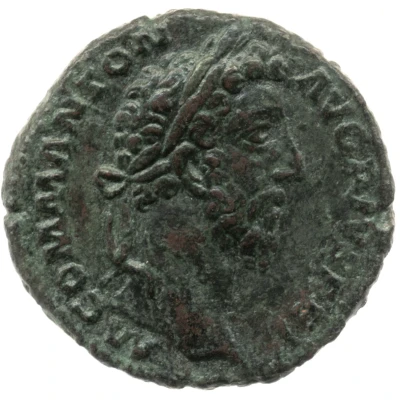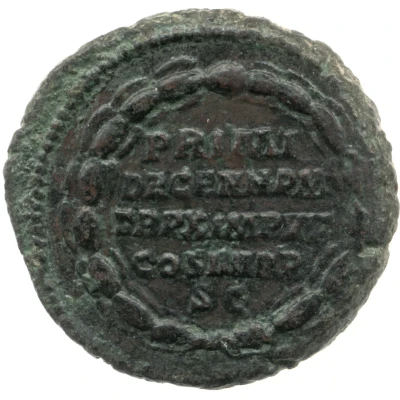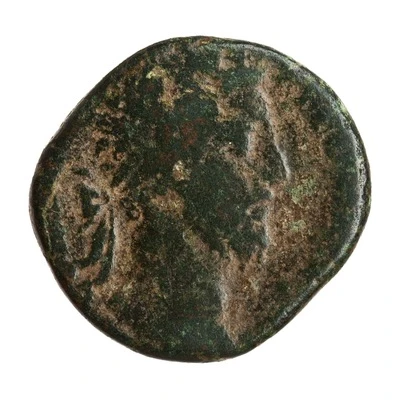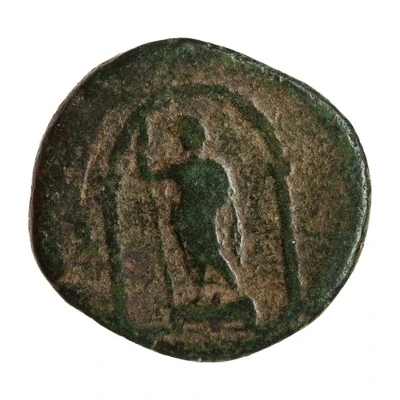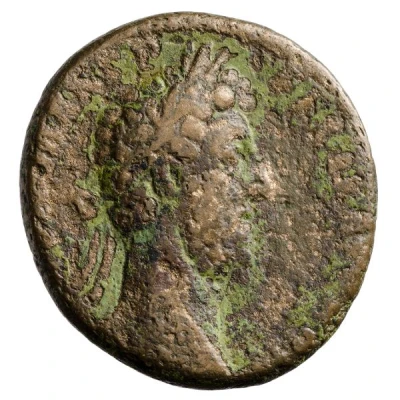
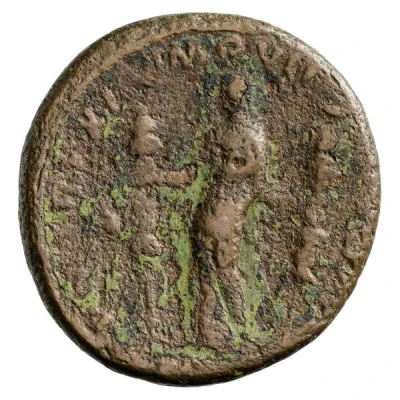

© Münzkabinett der Universität Göttingen (CC BY-NC 4.0 DE)
As - Commodus CONC MIL P M TR P XI IMP VII COS IIII P P S C; Concordia
185 year| Bronze | 9.2 g | - |
| Issuer | Rome › Roman Empire (27 BC - 395 AD) |
|---|---|
| Emperor | Commodus (Lucius Aurelius Commodus) (177-192) |
| Type | Standard circulation coin |
| Year | 185 |
| Value | As = 1⁄16 Denarius |
| Currency | Denarius, Reform of Augustus (27 BC – AD 215) |
| Composition | Bronze |
| Weight | 9.2 g |
| Shape | Round (irregular) |
| Technique | Hammered |
| Demonetized | Yes |
| Updated | 2024-10-06 |
| Numista | N#265832 |
|---|---|
| Rarity index | 97% |
Reverse
Concordia, draped, standing left, holding a standard in each hand.
Script: Latin
Lettering: CONC MIL P M TR P XI IMP VII COS IIII P P S C
Translation:
Concordia Militum. Pontifex Maximus, Tribunicia Potestate Undecima, Imperator, Septimum, Consul Quartum, Pater Patriae. Senatus Consultum.
Harmony with the soldiers. High priest, holder of tribunician power for the eleventh time, supreme commander (Imperator) for the seventh time, consul for the fourth time, father of the nation. Decree of the senate.
Comment
Example of this type:Münzkabinett der Universität Göttingen
Source:
Online Coins of the Roman Empire (OCRE)
Interesting fact
One interesting fact about this coin is that it features an image of the Roman goddess Concordia on the reverse side, which symbolizes harmony and unity. This is significant because it suggests that the Roman Empire, under the rule of Commodus, valued the idea of peace and cooperation among its citizens. Additionally, the fact that the coin was made of bronze, a relatively inexpensive material, suggests that it was intended for widespread circulation and use among the general population, further highlighting the importance of Concordia as a symbol of unity and stability in Roman society.
